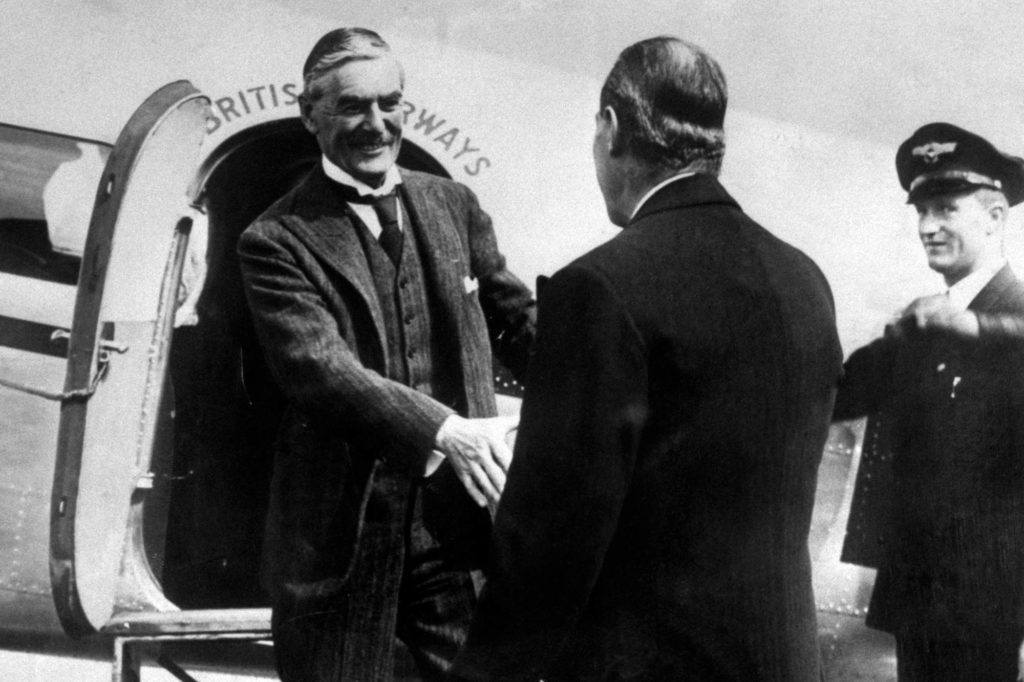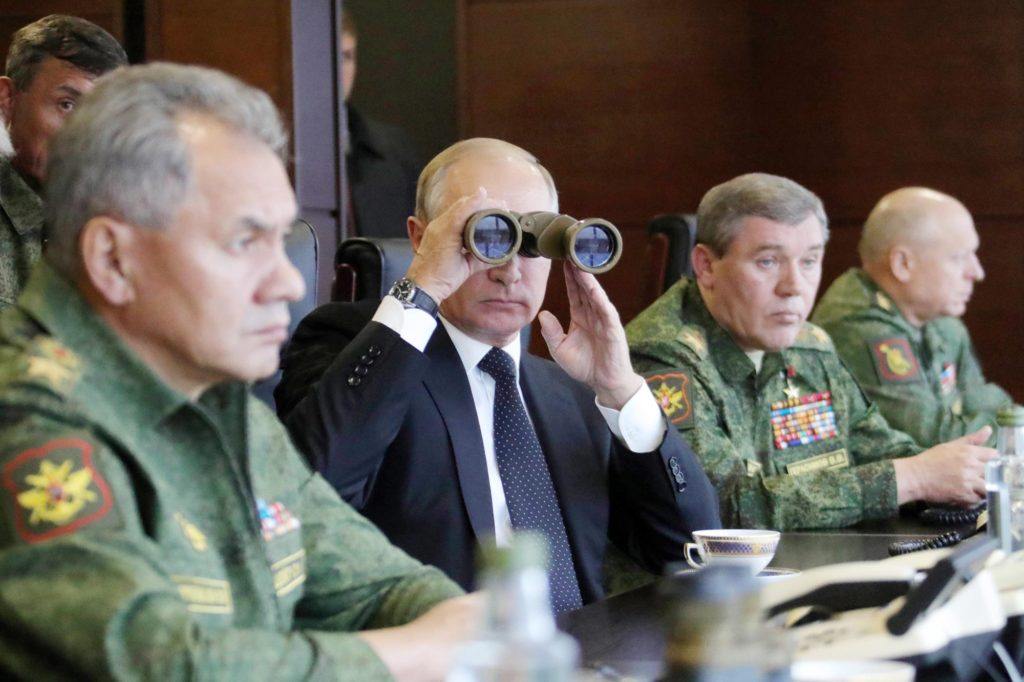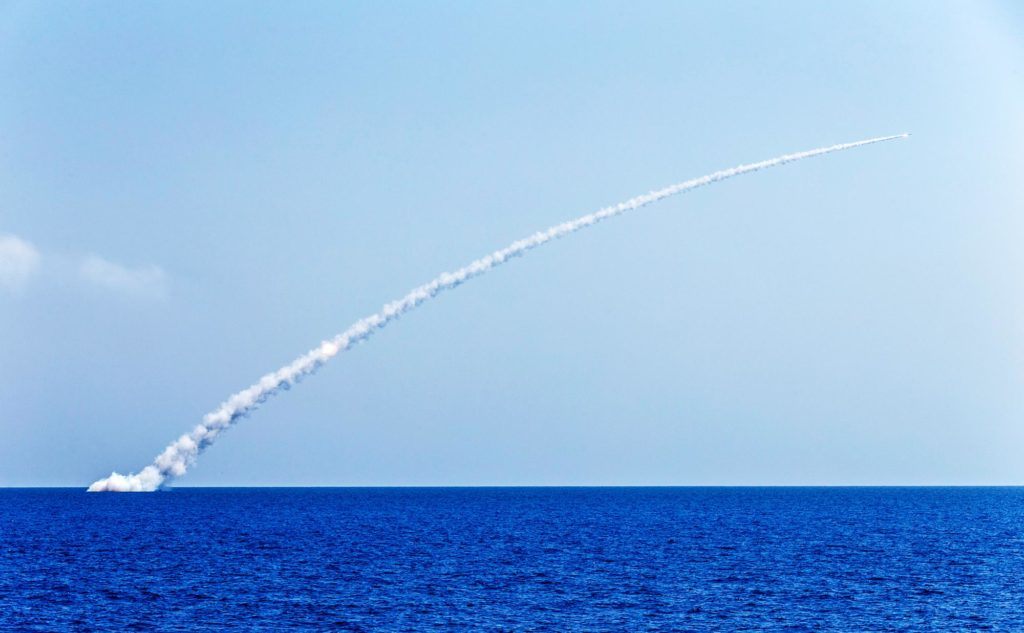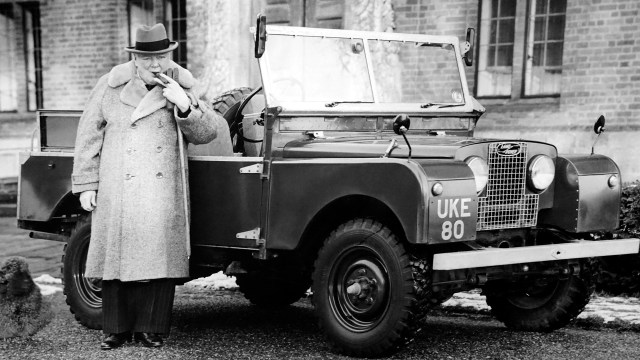
Everyone knows that Churchill called Russia “a riddle wrapped in a mystery inside an enigma”, but not necessarily when and why. The context in which he used this verbal matryoshka nesting doll is in fact as instructive today as it was on 1 October 1939 when he spoke the words in a BBC radio broadcast.
Churchill had been recalled to government as First Lord of the Admiralty, the position he had held at the outbreak of the First World War. He was not quite 65, and during his long “wilderness years” he had repeatedly warned about the growing Nazi threat. He had spoken out against Bolshevism too, but his attitude towards the Soviet Union was always more nuanced, telling the Russian ambassador after Munich (1938), for instance, that he would keep a 1793 vintage in his cellar to drink to the eventual Anglo-Soviet defeat of Hitler.
His 1 October broadcast began “The British Empire and the French Republic have been at war with Nazi Germany for a month tonight. We have not yet come at all to the severity of fighting which is to be expected; but three important things have happened.” First, Poland was “again overrun by two of the great Powers which held her in bondage for 150 years”.
Through a glass, darkly
Germany’s invasion of Poland had precipitated war with Britain and France, but it was Russia’s invasion of Poland that preoccupied Churchill in that broadcast. Russia, he said, had “pursued a cold policy of self-interest”. But Russia’s invasion of Poland did not precipitate war with the western allies. Not only that, it brought a very measured response from Churchill: “We could have wished that the Russian armies should be standing on their present line as the friends and allies of Poland instead of as invaders. But that the Russian armies should stand on this line, was clearly necessary for the safety of Russia against the Nazi menace.”
The speech would have been cleared by the War Cabinet, but it was classic Churchill. His strategic vision was almost invariably greater than of those who were officially the masters of strategy. As I explained in Too Important for the Generals: How Britain nearly lost the First World War, and in History Today, when Churchill was at the Home Office in 1911 he wrote a memorandum correctly predicting German strategy in the event of war, and what should be the British response, but was overruled by professional opinion. In 1915, when war on the Western Front turned to stalemate, he championed the Dardanelles campaign, the most far-sighted stratagem of the war, but again found the rug pulled from under him by the professionals.
The problem with much professional strategic thinking – now as then – is that it is often too mechanistic, a simplistic concern with ends, ways and means, failing to take adequate note of the dynamics of both “events” and of war itself. Nor does it always recognise that the mistakes that have led to the existing situation can and must be “amortised” in future strategy.
Churchill’s view of strategy was more subtle. Its art, he wrote, lay “in foreseeing the outlines of the future and being prepared to deal with it” – a usefully reductionist definition, cutting through the purism of the “Clausewitzians”. Never was this more in evidence than in his reaction to Stalin’s invasion of Poland. In his October broadcast, he said “I cannot forecast to you the action of Russia. It is a riddle wrapped in a mystery inside an enigma: but perhaps there is a key. That key is Russian national interest. It cannot be in accordance with the interest or safety of Russia that Germany should plant itself upon the shores of the Black Sea, or that it should overrun the Baltic States and subjugate the Slavonic peoples of South-Eastern Europe. That would be contrary to the historic life interests of Russia.”
He was seeing as through a glass, darkly, but he was seeing nonetheless – taking the long view that Britain and France should act on the assumption that Russia could not stand for long on the side of Germany, however impassively, for it was “contrary to [her] historic life interests”.
Churchill the historian
He was also mindful of how the invasion had come about. The German-Soviet Non-aggression Pact (or “Molotov-Ribbentrop Pact”, after the respective foreign ministers), was concluded only a few days before the start of the war. Britain, France and the Soviet Union had failed to reach a collective-security agreement against Nazi Germany, in large part because Chamberlain’s capitulation to Hitler at Munich in September 1938 (in the annexation of German-speaking parts of Czechoslovakia, the “Sudetenland”) had convinced Stalin that he would have to face German expansion in Eastern Europe alone. In May the following year he therefore dismissed his (Jewish) foreign minister, Maksim Litvinov, an advocate of collective security, and instead put Vyacheslav Molotov into the Narkomindel (foreign commissariat) with instructions to seek a deal with Berlin, if only to buy time to allow him to rebuild his forces, which were much weakened by his recent purge of the officer corps.

Churchill would be proved right when in June 1941, to Stalin’s utter astonishment, Hitler invaded Russia. When his private secretary, John Colville, brought him the news (Churchill had been prime minister for a year), he saw him respond with a “smile of satisfaction”. Broadcasting to the nation that evening, Churchill said, “No one has been a more consistent opponent of Communism [than I] for the last twenty-five years. I will unsay no word I have spoken about it. But all this fades away before the spectacle which is now unfolding. The past, with its crimes, its follies, its tragedies, flashes away… The Russian danger is therefore our danger, and the danger of the United States, just as the cause of any Russian fighting for hearth and house is the cause of free men and free peoples in every quarter of the globe.”
Churchill having judged Russia’s interests, and Britain’s, accurately, and therefore having framed a pragmatic response in the darkest moments of 1939, three weeks after the beginning of Operation Barbarossa – the German invasion of Russia – Molotov was in London signing the Anglo-Soviet Agreement.
Politicians not statesmen
The West has not always dealt as cleverly with Moscow since the collapse of the Soviet Union. Too often we have seemed to be treating the emerging Russia as if it were a defeated nation. Of course, Moscow frequently gave cause. Nato has tried – continues to try – a number of confidence-building measures, but these have not always recognised the real nature of the problem: the humbling of a great power whose new territorial integrity was unsettled, and whose history was one of continual threat of invasion from both west and east. Nato expansion, while perfectly legitimate, was bound to raise questions in Moscow’s mind about the credibility of the confidence-building measures. The implosion of Yugoslavia, seemingly encouraged by the West (such as Germany’s unilateral recognition of Croatian independence, and US talk of “unfinished business”), only added to Moscow’s dismay. The EU’s wooing of Ukraine seemed to confirm their worst fears.
The emergence of a “strong man” – Vladimir Putin – could have come as no surprise to any student of history. And at first, his economic muscle, which largely derived from the high price of oil, allowed him to restore national self-respect and regain leverage in the “near abroad”, the key to Russia’s sense of security. When the price of oil crashed in 2014, however, to achieve what he regards as Russia’s rightful place in the world, Putin then had to rely more on the military, which had been neglected after the collapse of the Soviet Union but into which he had lately poured a good deal of oil money.

History suggests that when an autocrat with a mission and a sense of grievance has powerful armed forces (especially with a concept of using them semi-clandestinely in “hybrid warfare”), the temptation to push speculatively to see which doors creak open is too much to resist. It does not serve in such circumstances to feed the grievance. But nor, of course, does it serve to invite speculation by appeasement.
The stasis in the West’s relations with Russia is having two particular effects. It is ramping up the military rhetoric and posturing on both sides to no mutual good. Exercise Zapad (“West”), now under way jointly with Belarus, and probably the largest Russian military manoeuvres since the collapse of the Soviet Union, is reminiscent of pre-1914 war games as well as those of the Cold War. Worse, at least in the short term – and perhaps in the longer term too – the stasis is making adversaries of nations that share vital national interests, notably in the defeat of terrorism and securing stability in the Middle East.
The West’s political leaders have frequently made an art of boxing themselves in by simplistic responses. We have frozen Russia diplomatically and economically, for example, because of her annexation of Crimea – and to no advantage. The reality is, however, that Crimea is never going to be Ukrainian again. If anyone doubts this or wonders why, they should read Sevastopol’s Wars: Crimea from Potemkin to Putin by Mungo Melvin, a retired British general with a singular feel for Crimea and its situation. The book’s subtitle could be “Why the past matters so much to Russians.”
The challenge for statesmen is therefore how to reconcile the de facto and the de jure. Russia has a legitimate claim on Crimea. The peninsula was never a traditional part of Ukraine; rather it was a capricious gift by Khruschev at a time when sovereignty was not an issue because Ukraine was a vassal Soviet Socialist Republic. The means Moscow used in pursuit of its claim were contrary to international law however; and there’s the rub. Yet a reconciliation of the de facto and the de jure cannot be beyond the jurists, diplomatists and statesmen of the United Nations. The plebiscites of 1919 may be a pointer. Not all the work of the Versailles peace conference was in vain. The challenge lies in not repeating Munich – appeasement, either in appearance or reality – or in making the sort of Faustian bargain that Churchill himself later came to regret.
The dangers do not, however, justify our continuing to do nothing. Resolving the issue of Crimea would clear the political debris that is preventing progress in dealing with that pseudo-Civil War, the Russian-backed separatist conflict in Eastern Ukraine. It would also bring the prospect of peace in Syria a little closer.

This is not to argue that Nato should disarm and put its faith in diplomacy. Far from it. As Churchill understood only too well – because he knew that Stalin did – diplomacy must be backed by military muscle, especially when dealing with an authoritarian system. And at present, Nato’s muscle is not what it should be. As I argued two years ago in The Times, Germany in particular is just not pulling its weight (see also Peter Franklin at UnHerd ). It was, after all, Frederick the Great who said “Diplomacy without arms is like music without instruments”.
Realignment of our policy towards Russia calls for statesmanship of the highest order. Yet whereas Russia has Putin, who clearly thinks in grand-strategic terms, at present the West just has politicians. But unless the West, as Churchill said in his October 1939 broadcast, can “through the fog of confusion and uncertainty… discern quite plainly the community of interests” which exists with Russia (and they, the Russians with us), then we are condemned to ever increasing levels of military spending, ever increasing risks of miscalculation, and the continuing neglect of the real threats to the community of interests.










Join the discussion
Join like minded readers that support our journalism by becoming a paid subscriber
To join the discussion in the comments, become a paid subscriber.
Join like minded readers that support our journalism, read unlimited articles and enjoy other subscriber-only benefits.
Subscribe